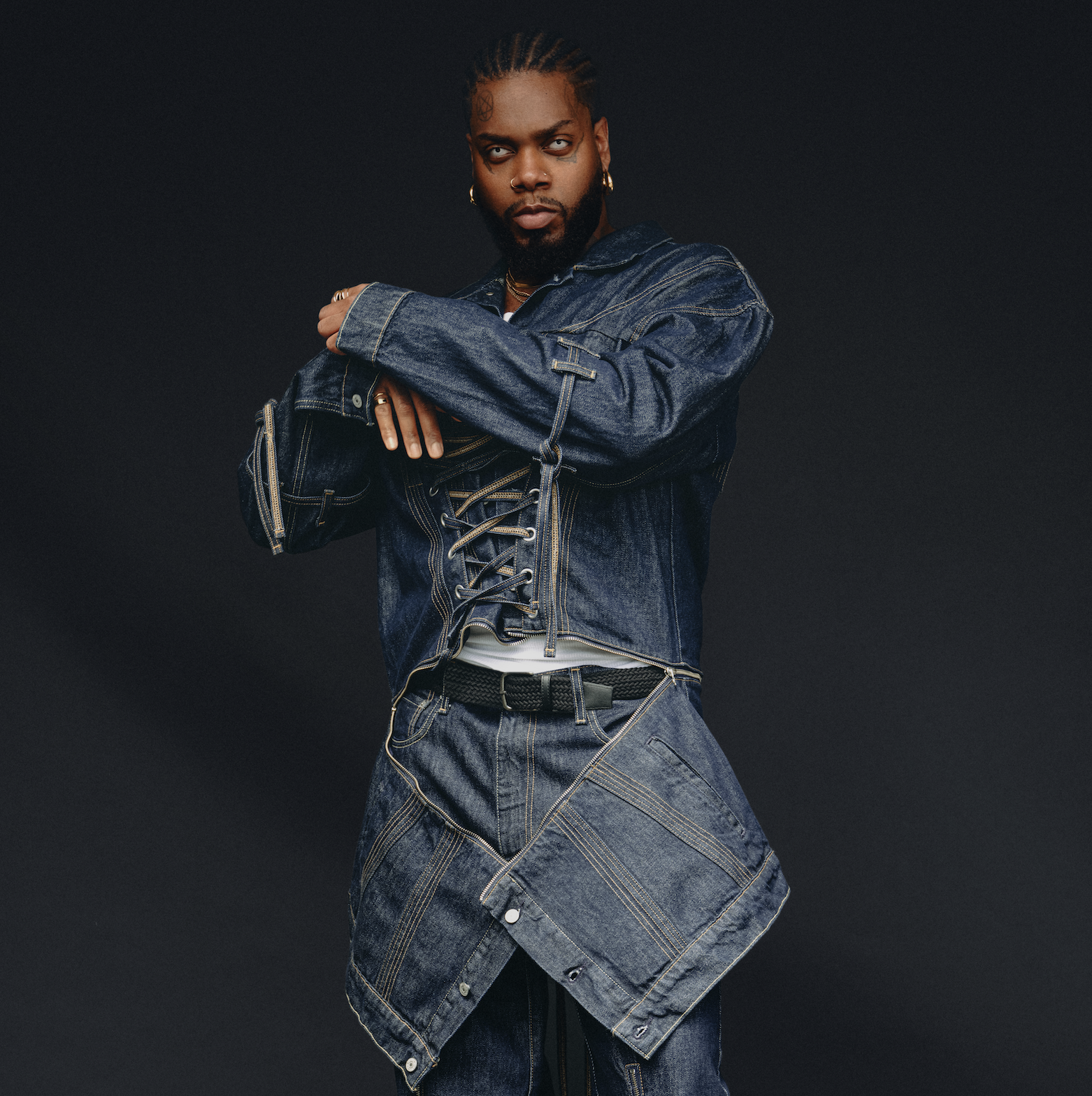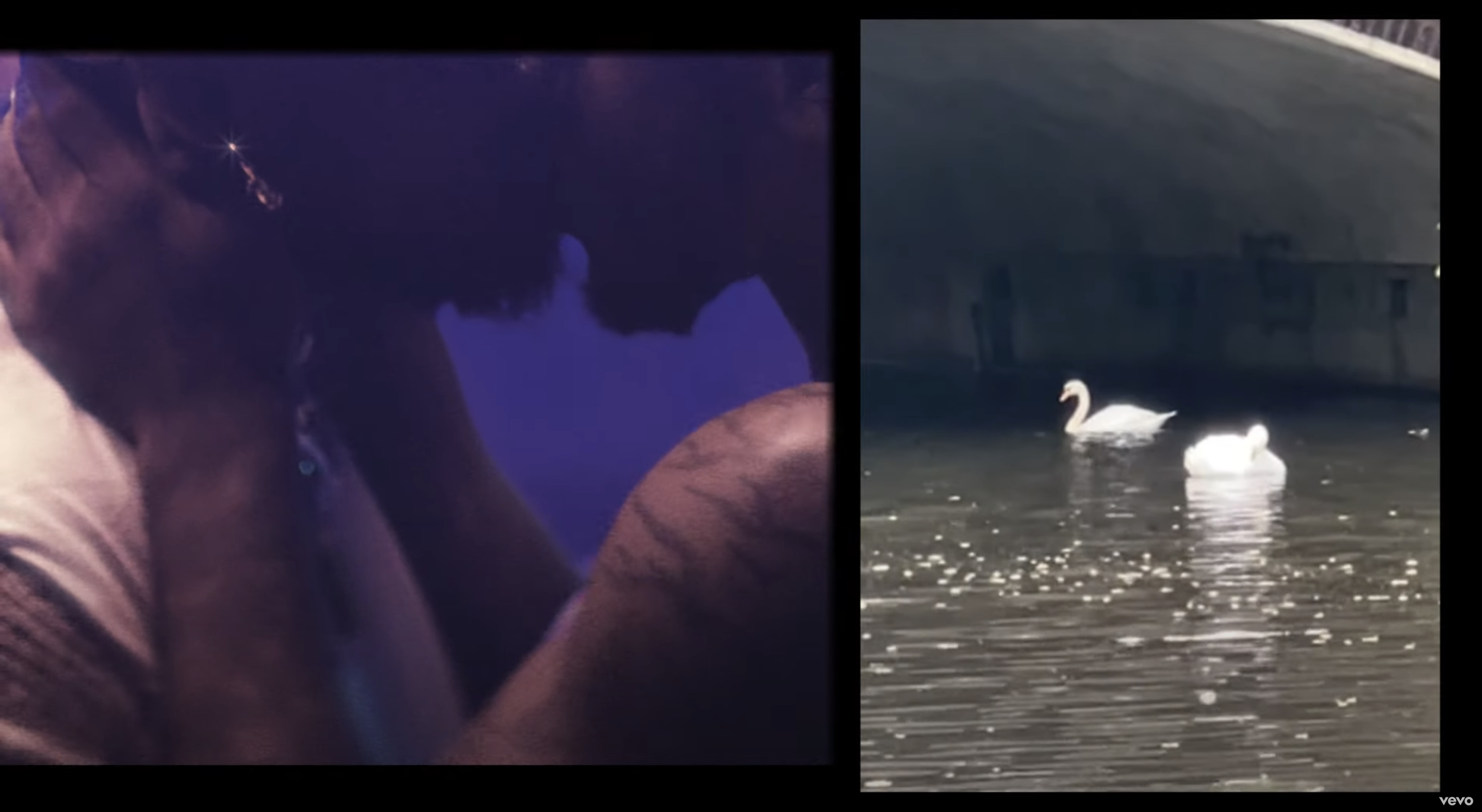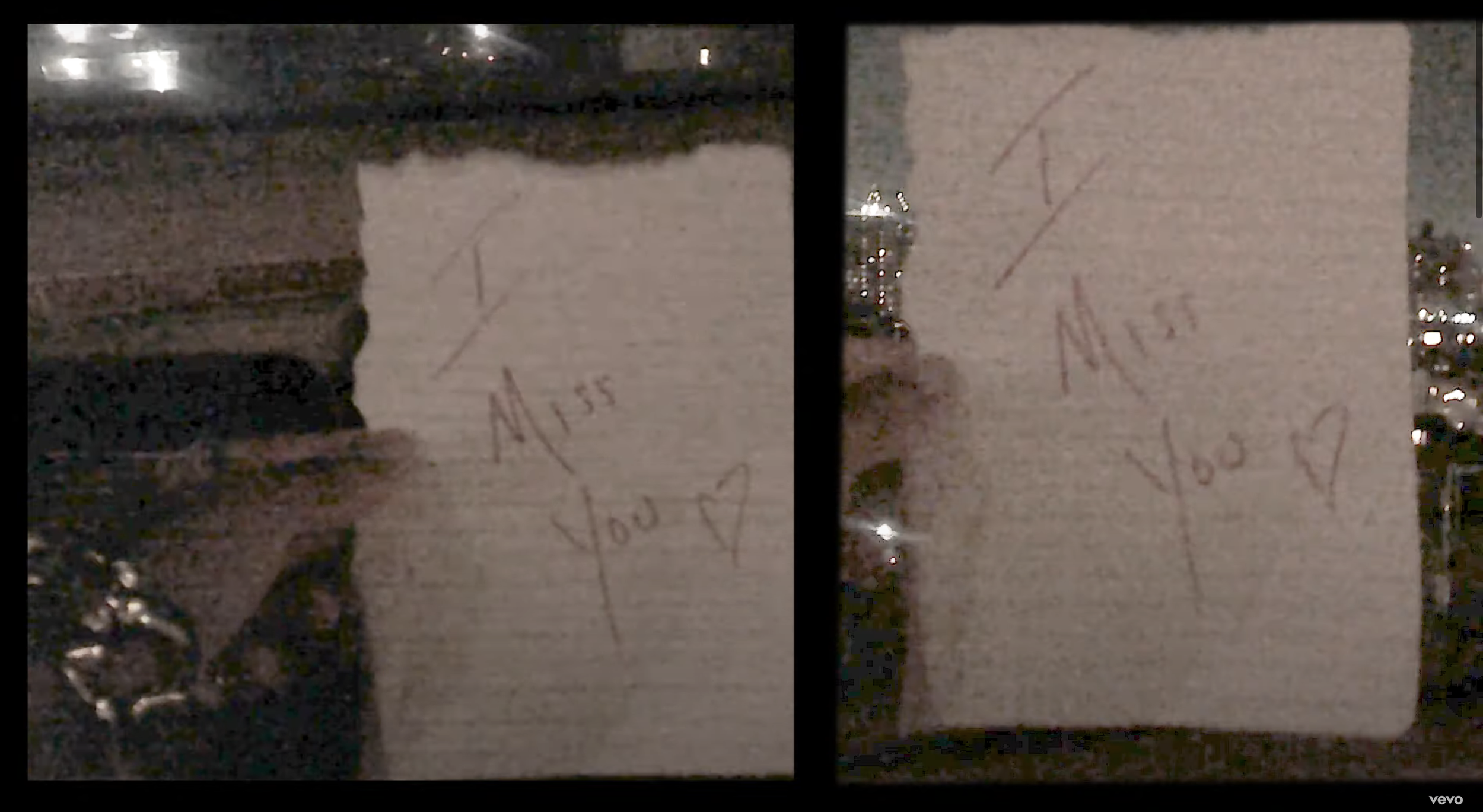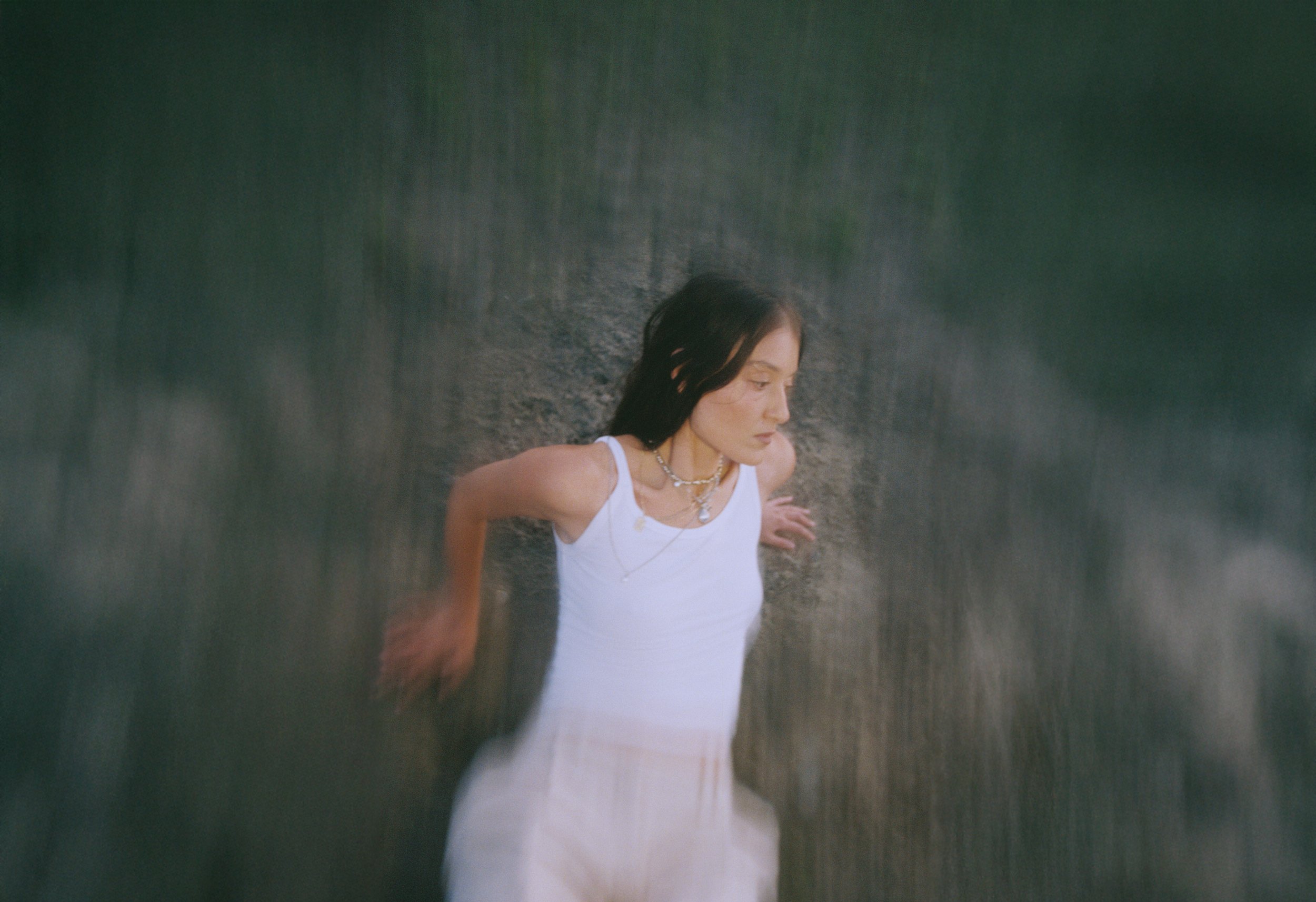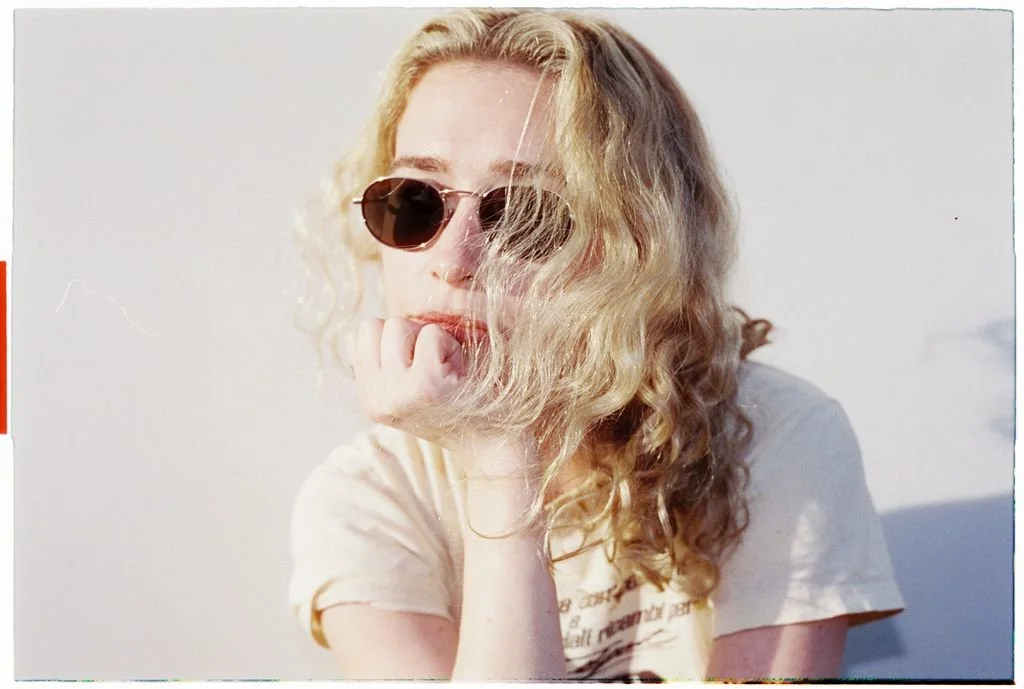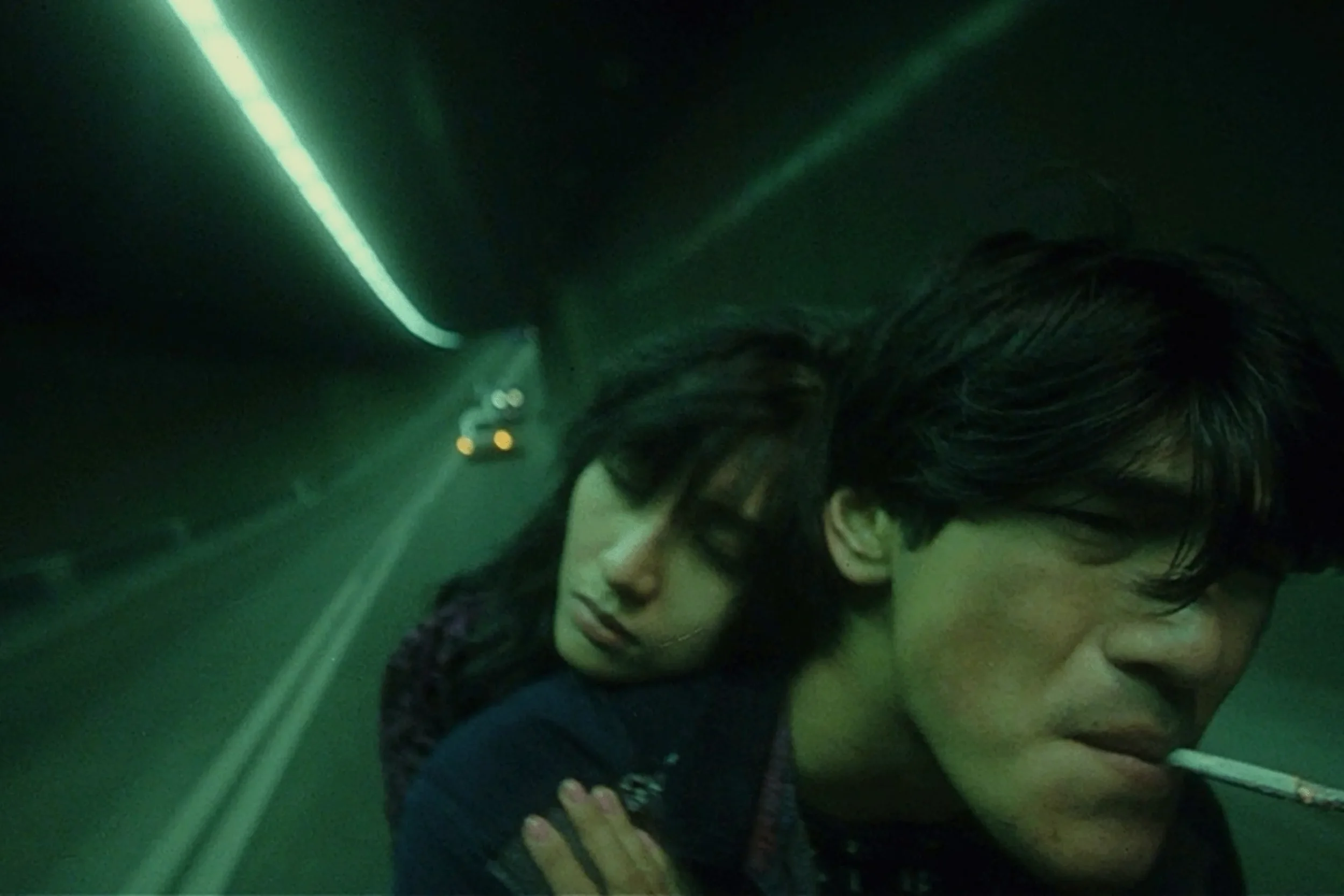GRIP
Photo by Denzel Golatt
Serpentwithfeet’s new album ‘Grip’ is exactly how you’d like to imagine its creator Josiah Wise. He is tender, gentle, steamy, hot. A multifaceted human who is as happy in a grocery store as they are transforming into a radiant self in a club. ‘Grip’ is an ode to reformatting and the places that allow you to do it. Reformatting body and dance. Reformatting intimacy at home. The imaginative body as part of the physical space and vice versa. It is true example of a stage of growth informed by its past. And it’s very, very, very sexy. As a fan of many years when I finally got to speak with Josiah I went broad, talked too much out of excitement, and can confirm he is a stunningly lovely human with an immense passion and innate love of what he is and does. Publishing an interview about this album is in its essence a thank you to the nightclubs that formed us. The Queer identities forged within music and bodies in the dark. The underlying force that drives the album ‘Grip’ and the introspection of a musician with beautiful intentions. Thank you to the spaces that form us, and the art they create.
When you were performing your theatrical show ‘Heart of Brick’ pre-album release you were actually playing some tracks from ‘Grip’ onstage, even though it hadn't been released yet. Did you intentionally think about that as a unique way to release an album?
We knew that we wanted. I knew that. First off, I'll say that the album and ‘Heart Of Brick’ act as like companion pieces. And so I knew that I wanted the music from ‘Grip’ to be the anchor for the stage production. We wrote quick songs that go in between the album songs, you know, so there were a lot of other transitional moments. There is a lot of text in the show so we so we also we had to create new music as well, because it's a it's like a 75 minute show. But I knew from the beginning that that ‘Grip’ would be the spine for ‘Heart Of Brick’.
One of the things that both the show and the album bring up is spaces. How they hold people, and how they allow people to exist. These works both have a very clear focus on a Black Queer nightclub experience. What led you to that?
Well, the clubs that I've been to have raised me a second time. It's almost like they've helped me rewire or re reformat the way that I think about my body, the way that I think about dance, the way that I think about dancing in public. My time being a clubs has really transformed me. And I think this album is my way to rhapsodize about that. There are places that the album has that are also about the intimate spaces that are private in the home. But the callback center to the club, it was important for me to make that because I think the nightclub has offered me so much. It's offered me so many alternative ways of being which is just really a blessing.
As a queer person myself clubs were really formative spaces of freedom for me. And not just queer clubs, it was more about the music. There's something about it that unlocks you. What are your thoughts on why a nightclub is such a transformative space, especially in the queer realm?
I think, to be honest, all people like to dance, but I don't mean every individual, I mean in every culture. Globally, people respond to music. And whether that music is hand claps or stomping, or the music that is made on piano or drums. All the all the different forms and centuries of people dancing to music, it is necessary. It's necessary the same way that we exhale, and it allows us to exhale, it allows us to be decompressed. So I think for queer people we just happen to have a little more sauce, a little more colour. And when I think about queerness and gayness, I think about color and innovation, ingenuity, and imagination, and so I think imagining a new world for yourself is obviously going to influence the kind of music and the kind of dancing and the kind of fashion. When you imagine a new world for yourself you don't only think about governmental politics you start thinking about your own dance politics. How do you walk into the room? Do you stretch into the room? Do you walk backwards? I think these are things that people think, when we want to make entrances or statements we think about it. You want to be the person with the outfit. So that means that you're going to have to assume what somebody else is going to wear and then go extra crazy, you know, go extra hard. It all adds to the fun and the wonder. And the competition.
With some places, though, it may be more chill club. And that all just it depends on the space. I feel like I've been at a lot of different types of clubs, so I think have been informed. But queer gay spaces, they're not all the same. So that's why they're beautiful.
You wrote a sort of love letter to Baltimore for an article once. It was a list of things that you loved about it. And one of one of the lines was “turning any dull moment into rapture simply by banging out the infamous Baltimore club beat on my chest or a table or refrigerator”. Was there a nostalgic part of your process in making this type of album?
I was definitely try to make a sound responding to the Baltimore club music that I grew up on. And there were a quite a few hands in the pot on this, which made it really wonderful. But yeah, I was thinking about Baltimore club music. Growing up, you know, when we were in schools, or went away to theater rehearsal, or whatever, we would make that beat and you could make the beat on your chest, you can do it on like the armrest in the car. And we will make up our own little lyrics, you know, as to what you did, and we would dance and that was like one of the fun things that we would do as kids. And I think that the whimsy of it. Obviously it never left me and with this I wanted to make something that was just fun.
The musicians of Baltimore have this great instinct. There was a song that I grew up on that I loved, it's called ‘Dance My Pain Away’ by Rod Lee. He talks about getting having a really tough day at work and having bills to pay, but he literally dances pain away. It's just really a beautiful, a beautiful song and actually a really honest song. The melody is so catchy, and the music is incredible. And when I listen to most of Baltimore club music, I think they can take everyday topics and just make it really magical. There are really great instincts and an understanding of the mechanics of great songwriting. lt wasn't just like, it was a fun beat, but they were great songs as well. And I hope that some of that instinct has found its way into my work, you know. I can only hope? I think it has.
In the same poem, you mention learning three part harmonies in a religious context, and every kid around you knowing all the words to the anthem, ‘Lift Every Voice and Sing’. What about influences from that earlier side of it on this album?
I think I think they both work in tandem. The beautiful thing about being from Baltimore, or being a child growing up in any predominantly Black city is that you get to collect a lot of data. And I think there's one side where I listen to a lot of club music and R&B and Pop music. But I also learned a lot about gospel music and classical music and African American spiritualism so I feel like I got a really well rounded musical experience because of where I lived. And because of the importance that was put on understanding it. I remember just being in elementary school, and it being impressed upon us that we need to understand Ella Fitzgerald and Duke Ellington's impact. By the time I got to middle school needed to understand classical music. I think, all the sides of me were nurtured where I got to understand more traditional songwriting and composition, and on the other hand, I got to hear a song that maybe didn't have any chords at all, it was just drums and vocals. I got I got a really diverse access
to music.
What would you create as your ideal space for people to come into and get to understand you? What would it look like? Is it a knitting club? Is slam poetry night? What elements of you would be there?
My ideal space would probably be a grocery store. I love grocery stores, but it'd be a grocery store that also has books. So it would be a food library. It'd be the grocery library. Yeah, I feel like I love grocery stores so much. I think they're just such magical places. And I would not be surprised if at night, you know, the cartons of eggs and cartons of milk go on adventures, you know, I just would not be surprised. I love grocery stores and I have for as long as I can remember.
I know someone who proposed to her wife in a grocery store.
Yeah! I feel like there's so many rom coms or commercials that sort of present this idea like, you'll run into your partner, they're reaching for the same brand of flour, or the same cookies or whatever. To see people go into a grocery store to gather items to go home and cook and prepare for themselves just feels really beautiful and nurturing. So I love it. I'm gonna go to the grocery store later, and have a romantic moment. I'm gonna go and just get one item but be in the store for an hour just walking around.
The track ‘Damn Gloves’ features your long time collaborator Ty Dolla $ign. What is your favorite thing about him musically? And then what's your favorite thing about him as a person?
My favorite thing about him musically is oh my gosh, I mean, his melodies and lyrical ideas are genius, and witnessing him write and come up with ideas so quickly. In theory, it seems so effortless, and I'm sure you know these skills take years of work and craft. He is a craftsman, but I think just seeing the way that he understands how to make a Pop song, like popular music, music that can be accepted and celebrated by many. He's really good at finding the most artful melodies and lyrical ideas and I've learned so much by witnessing his process. And I will say as a person he's so kind and also he just has such a great sense of humour. He's really funny. He’s just really great to. He's great to share space with, and like secretly, a lot of fun to be around.
Your last album ‘Deacan’ had a lot to do with joy and radical softness. What is your perception of joy these days? Is it still in those little tender moments or has it moved on? What do you think about when you think about joy?
I think about the grocery store again. I think tender moments within tender moments in the grocery store. I think also, the cool thing about going to a grocery store, this is going to be so silly, but it's like running into friends and running into people and having really great conversations in the grocery store like that. That would be such a great concept, conversations in aisle 3. I feel like I've had so many great conversations with people that you've been meaning to hang out with, but you're trying to figure out schedule and like, maybe I'm on the way to something or they’re on their way to something, but we have 10 minutes to talk. Then if you want to, you end up in the same line.
You don't have a video in a grocery store yet…
I need to that's a great idea. That's a great idea.
Words by Alex Officer

